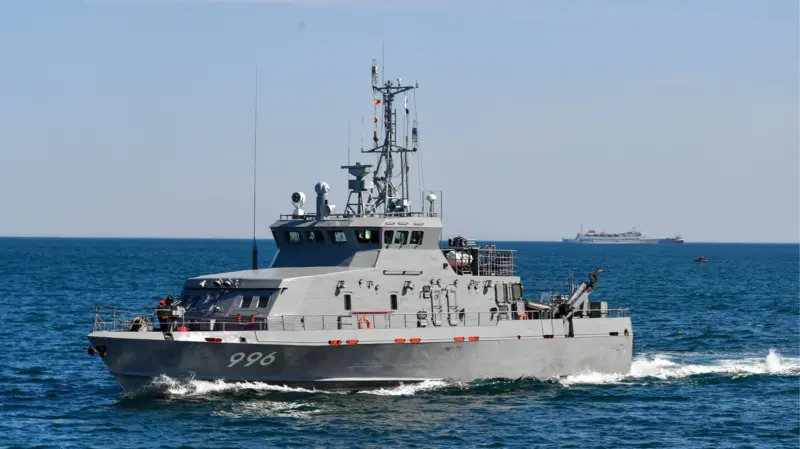European parts still reaching Russian ships despite sanctions, BBC finds
BBC investigation exposes shipments of parts for anti-sabotage boats and border patrol ships used by Russian military and security forces.


A BBC Russia investigation has revealed that European-manufactured parts and equipment continued to reach Russian naval vessels at least until 2023, despite sanctions imposed following Russia’s invasion of Ukraine. The shipments were facilitated through intermediary companies registered in Türkiye and China, according to customs data provided to BBC Russia by C4ADS, a non-profit organization studying international crime.
The BBC’s examination of customs data for 2022-2023 uncovered deliveries for ships operated by the Russian Navy and Federal Security Service (FSB). All identified shipments were made indirectly through intermediary companies in Türkiye or China.
One of the largest deliveries occurred in March 2022, when Croatian company Adria Winch imported equipment worth $113,786 from Croatia to Russia for “Grachonok” type anti-sabotage boats. These vessels are designed to patrol and protect maritime areas from sabotage groups and are equipped with a large-caliber machine gun, two underwater grenade launchers, and a portable Igla anti-aircraft system.
Other discovered shipments included parts for Project 10410 border patrol ships, which operate in the Black and Caspian Seas. These vessels, under FSB control, are considered combat ships due to their armament and capabilities. They are equipped with rapid-fire artillery systems and large-caliber machine guns, suitable for patrolling, protecting maritime borders, and anti-sabotage operations.
ISW: Russia relies on India, Serbia, China to evade sanctions
In September 2023, Danish manufacturer Grundfos imported a ship pump worth $632 to Russia for these border patrol ships, ordered by the Kronstadt Trade and Industry Association. Later, in December 2023, equipment for a Project 22120 patrol ship, also under FSB control, was imported. This shipment included a pump from German company Allweiler and a compressor from Dutch firm Deno Compressors, totaling $46,000.
The BBC reached out to the manufacturers mentioned in the report. Deno Compressors emphasized that it had no contracts with the Kronstadt group or their Chinese intermediary, did not supply equipment to the Russian Navy, and did not violate sanctions. Grundfos stated that after 2022, it ceased all contacts with Russian suppliers and allocated additional resources to monitor sales to prevent re-export of their products to Russia.
Related:
- UK imposes new sanctions on Russian LNG sector
- US arrests Russian citizen for illegally exporting military-use electronics to Russia
- Russia doesn’t have endless resources, its economy nearing tipping point, expert says
- Russia uses old ASML machines to produce microchips for weapons against Ukraine
- Voice of America: Russia repairs Su-30s with Western equipment
- ISW: Russia relies on India, Serbia, China to evade sanctions
- Ukraine urges Hong Kong not to help Russia evade sanctions



